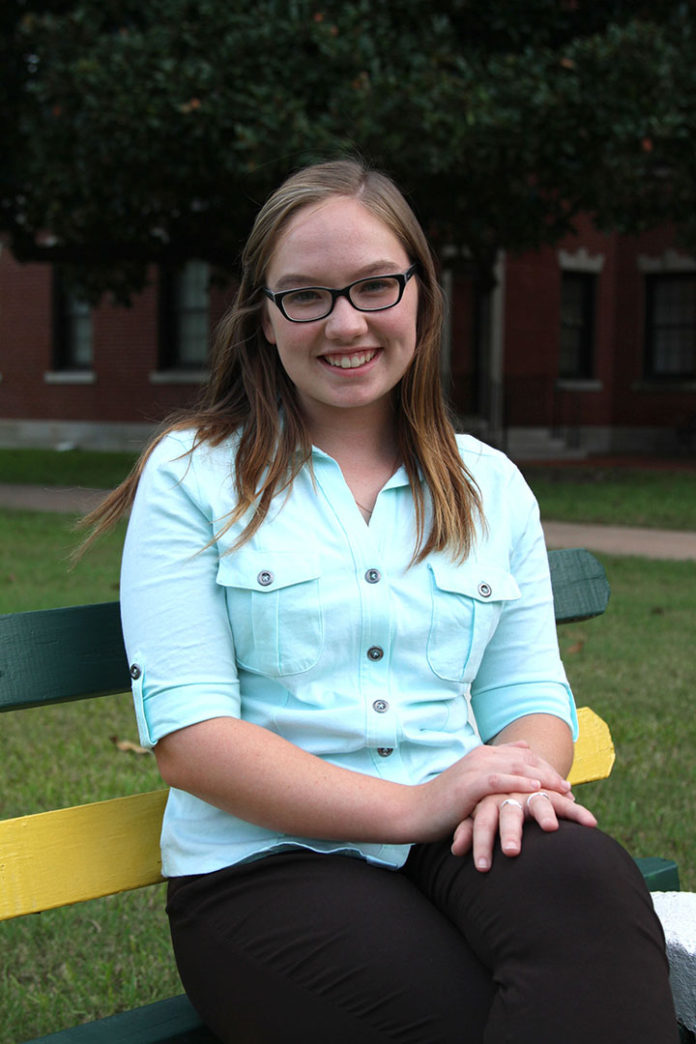
By Clarissa Anderson | Reporter
The freedom of being a University Scholar may hurt some of the program’s students. The University Scholar Program has relatively few requirements for Baylor coursework. However, for some students, being a University Scholar can make it hard to get involved in the departments their concentrations are in.
University Scholars cannot have any minor or major other than Bachelor of Arts in University Scholars. Instead, they concentrate in areas of study, taking some courses in departments they are interested in.
“It’s like this mystical program that is for a bunch of kids that don’t know what they want to do, but they know they want to do it really well,” Rowlett junior and University Scholar Rebecca Voth said. “So you don’t ever have to choose a major. In fact, you can’t. You’re not allowed to have a major or minor or anything like that.”
Since University Scholars are only concentrating in certain subjects, they may have trouble being included in departments as much as they would like.
Voth said students may not be included on departmental email lists, which prevents them from being aware of opportunities they could be interested in.
Even though departments want to include students, they may not be aware that University Scholars are in their department because the students do not appear on department lists.
“I talked to a friend the other day, and she was like, ‘Yeah, they had some sort of event with this scholar I really wanted to meet, but I didn’t get the email so I didn’t get to go,” Voth said.
Dr. Jennifer Good, director of the University Scholar Program and associate professor of German, said the program does not automatically send departments lists of which students have a concentration in the department because students state their concentration only to the program, and their information may be outdated or change quickly.
“If [departments] want to get that information from us, we’re very open with the information we have,” Good said. “We just say that we can’t guarantee its accuracy because we’re relying on students to self-report as well.”
Since University Scholars are only concentrating in subjects, they may not be considered eligible for certain departmental scholarships or study abroad opportunities that require students to be a specific major – even if students have the equivalent number of hours as a major.
“There’s this really cool program in the Spanish department where they’ll pay for you to study abroad for the whole semester and do mission work as well in Spain, and it was specifically for Spanish majors,” Voth said. “I was like, ‘I take the equivalent hours to be a Spanish major,.If you look at my hours, I’m basically a Spanish major,’ and I applied for it, and they were like, ‘Nope, you’re not a Spanish major; you don’t get to even be eligible.’”
National Merit Finalists are automatically accepted into the program, according to the University Scholar Handbook. National Merit Finalists receive a full-tuition academic scholarship if they select Baylor as their first-choice college. However, around two-thirds of University Scholars are not National Merit Finalists and may find it hard to receive assistance through departmental scholarships because they are not eligible.
“A lot of times, the assumption is that the U Schols don’t need any more assistance, but not all of us are National Merit [Finalists],” Voth said.
Good said departments decide who their scholarships will be made available to, which depends on factors such as who and how many students are part of the department.
While some departments may limit scholarship availability to majors, in her department, University Scholars have the same opportunities as other students.
“University Scholars who are concentrating in German do have access to the same amount of money that German majors and minors have access to,” Good said.
Good encourages students to speak with the faculty mentors of the department if they would like to be more involved in the department.





